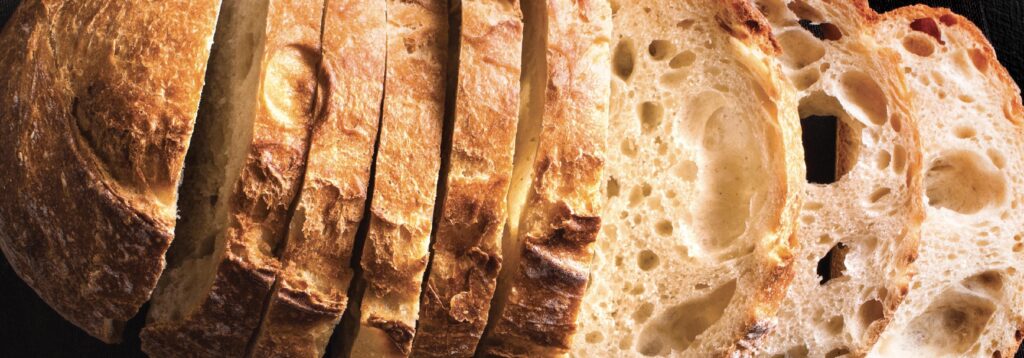 Use of cold atmospheric plasma for the preservation of bread.
Use of cold atmospheric plasma for the preservation of bread.
Cold atmospheric plasma (CAP) is an emerging technology that can be used for food storage. In this context, the objective of a recent study, carried out by a group of Polish researchers (Starek‑Wójcicka et al., 2022), was the implementation of this technology to extend the shelf-life of different types of bread. In fact, samples were used for the tests with (based on wheat and rye flour) and gluten-free (based on maize and rice flour).
The latter were subjected to CAP treatment for a time varying between 2 and 10 min and subsequently analysed for the main chemical-physical and microbiological parameters during a storage period of 6 days. The results show that after 10 min of CAP exposure no mesophilic bacteria or fungi are found in bread. It has also been observed that a minimum treatment time of 2 min causes complete inhibition of yeast and mold growth in all tested products.
However, irrespective of the duration of exposure, the samples also show a decrease in moisture content and simultaneous increases in hardness and elasticity. In conclusion, the authors argue that the application of CAP technology to extend the shelf-life of bread is definitely promising. However, further analysis is necessary to limit the undesirable effects on the structural characteristics of the product, for example by changing the recipe.
New strategies for the biopreservation of bread.
Bread is recognized as one of the most common foods, but it is also easily prone to unwanted microbial attacks. This causes significant economic losses not only to producers, but also to consumers. As a result, the industry is constantly looking for technologies that can extend the shelf-life of the product without compromising its safety. Therefore, the aim of a recent study, carried out by a group of international researchers (Starek-Wobicka et al., 2022), was to illustrate the strategies proposed in recent years in this context, in particular those based on biopreservation methods.
According to the study, microbial fermentation using lactic bacteria (LAB) and yeasts has achieved significant results thanks to the exceptional antifungal activity of these microorganisms, which significantly extends the shelf-life of bread. For example, samples treated with strains of Lactobacillus plantarum and Lactobacillus rossiae have been shown to inhibit the development of fungi for a period of 21 days. This is probably due to the action of the main lactic fermentation products such as lactic acid and acetic acid.
In conclusion, the authors argue that although biopreservation is effective in extending the shelf-life of bread, some limitations require further investigation to be overcome. In particular, it is necessary to test the antimicrobial capacity of several microbial cocktails before their use in the product as antimicrobial effects are strain-dependent.
References: Starek‑Wójcicka et al., Scientific Reports, 12, 2022, 22003; Rahman et al., Foods, 11, 2022, 1-19.



